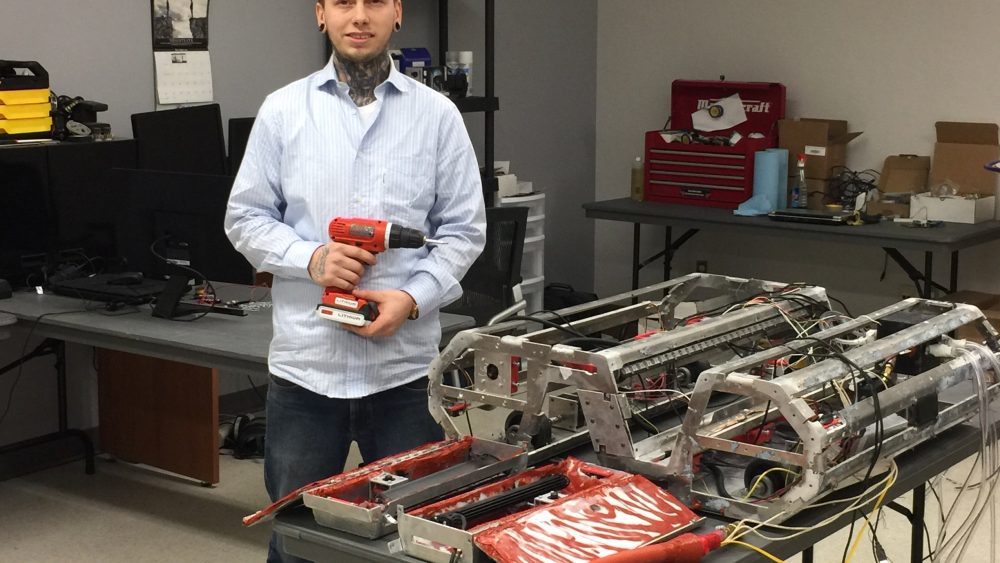Cory Wigle, a 2nd year Mechanical Engineering student, and his invention are making a considerable difference in the manufacturing world. His award-winning robot, affectionately named ‘Suzan’, is used to repair dents and dimples in plywood presses.
Here’s what you need to know about how plywood presses are traditionally repaired:
- Since the machines operate at 200°C, production must stop for a day to allow the machines to sufficiently cool for a worker to safely enter the machine to repair the damage
- Since production is halted, the facility loses out on one day of production to accommodate the repairs
- Even with one day of cooling, the press is still too hot for a worker to enter unprotected. The worker must wear a liquid cool suit prior to working on the machines
- The area where repairs are made is tight and awkward: workers have about 12” of clearance to work with the machine. Any welding that must be completed is difficult and often in an overhead or horizontal position
This dilemma was brought forward to Canadore College’s ICAMP (Innovation Centre for Advanced Manufacturing and Production) facility in North Bay, Ontario, where Wigle, a student employee, was tasked with designing and fabricating a solution. Using technology such as SolidWorks, waterjet cutting, and 3D printing, Suzan was created.
The robot is designed to repair the damage to the plywood press without shutting down production. Not only does this new technology remove the risk of human injury, it also saves manufacturing companies a significant amount of time and money: “The robot pays for itself the first time you use it,” Wigle says, further explaining that Suzan uses “an air compressed cooling system to counteract the heat, along with aerogel insulation.”
Recently, Wigle was selected to enter Suzan into a nationwide competition, where his invention took home 2nd place.
As someone who has struggled academically at the secondary school level, Cory hopes that his recent success will persuade others to explore the skilled trades.
“You have to work really hard at it every day. My first semester, I did three hours of homework every night.” He is set to graduate from the Mechanical Engineering program in spring of 2017, and is currently seeking employment in the industry.


Wow what a great looking kid he must look like his father. Great job cory !